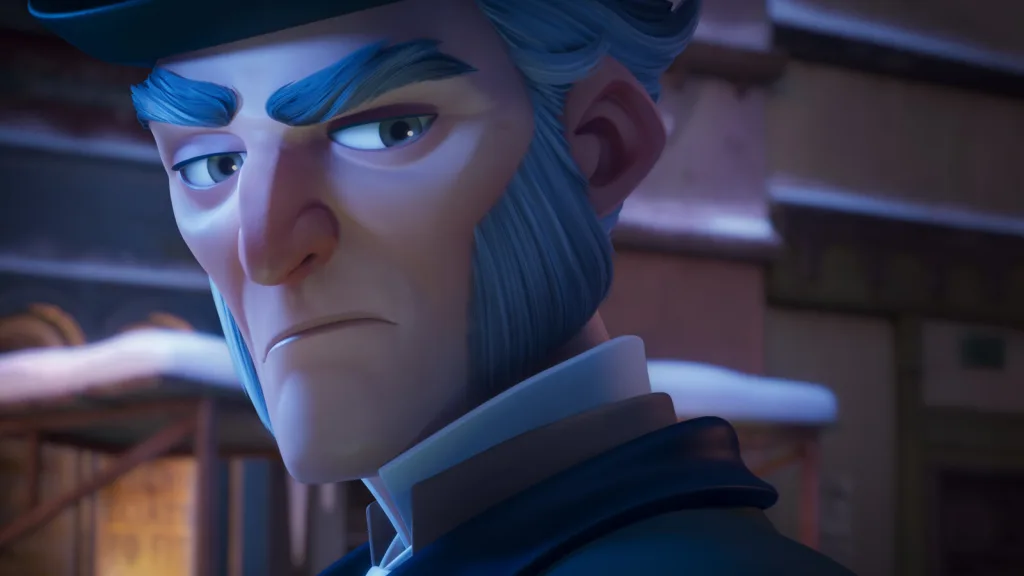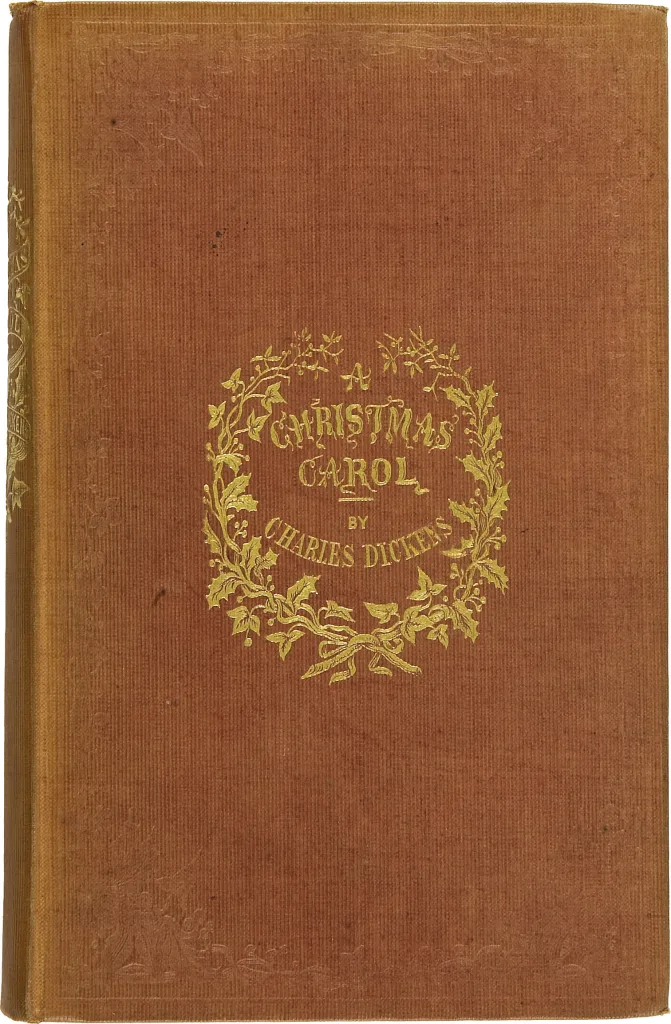Scrooge, the iconic character from Charles Dickens’ beloved novel A Christmas Carol, is often portrayed as a bitter and lonely man in his adulthood. However, it is important to delve into his past in order to understand why he became this way. One significant aspect of Scrooge’s lonely existence can be traced back to his childhood, particularly his experience at school.
Scrooge’s childhood was far from idyllic. He was raised in a loveless environment, with a father who showed little affection or care towards him. This lack of parental love left a profound impact on Scrooge, shaping his outlook on life and his ability to form meaningful connections with others.
During his formative years, Scrooge spent a significant amount of time in boarding school. This period of his life was marked by isolation and neglect. He was often left to his own devices, with no one to provide him with emotional support or companionship. This sense of loneliness became deeply ingrained in his psyche, leading him to become withdrawn and detached from others.
Furthermore, Scrooge’s experiences at school were not only characterized by neglect but also by mistreatment. He was subjected to harsh discipline and even abuse, further exacerbating his feelings of isolation and alienation. These traumatic experiences left a lasting impression on Scrooge, instilling in him a deep distrust of others and a reluctance to form close relationships.
However, amidst the darkness of his childhood, there was one bright spot – his sister, Fan. Fan was the only relative who showed genuine care and affection towards Scrooge. She provided him with a sense of love and belonging, offering a glimmer of hope in an otherwise bleak existence. Unfortunately, Fan’s untimely death only added to Scrooge’s sense of loss and loneliness.
It is important to note that Scrooge’s childhood experiences cannot solely be blamed for his later transformation into a bitter and miserly man. However, they undoubtedly played a significant role in shaping his outlook on life and his inability to connect with others on a deeper level.
Scrooge’s lonely existence as a child at school can be attributed to a combination of neglect, mistreatment, and a lack of emotional support. These experiences left an indelible mark on his psyche, contributing to his later isolation and reluctance to form meaningful connections with others. Understanding the roots of his loneliness provides valuable insight into the complex character of Ebenezer Scrooge and the transformative journey he embarks upon in A Christmas Carol.
Was Scrooge Lonely As A Child?
Scrooge’s childhood was marked by a sense of loneliness and sadness. Dickens portrays young Scrooge as a solitary figure, suggesting that he lacked companionship and a sense of belonging during his formative years. However, amidst this loneliness, there were also moments of love and happiness.
1. Loneliness:
– Scrooge’s solitary nature is depicted through his isolation from other children. Dickens describes him as a “solitary child,” indicating that he had few, if any, friends or playmates.
– The absence of family warmth is emphasized by the fact that Scrooge was left alone at school during the holiday season while his peers returned home to celebrate with their families.
– The lack of parental affection is further highlighted by Scrooge’s separation from his father, who was distant and cold towards him.
2. Sadness:
– Scrooge’s childhood is described as a “melancholy boyhood,” suggesting a prevailing sense of sadness and unhappiness.
– His isolation and lack of emotional support likely contributed to this melancholy, as he had no one to confide in or seek solace from.
– The absence of joyful childhood memories is indicated by Scrooge’s inability to recall any particular moments of happiness from his early years.
3. Love and happiness:
– Despite the loneliness and sadness, Scrooge experienced love from his younger sister, Fan. Dickens portrays Fan as a loving and caring sister who was the only person capable of breaking through Scrooge’s emotional barriers.
– Fan’s unconditional affection for Scrooge is evident in her visit to bring him home from school, where she joyfully exclaims, “Father is so much kinder than he used to be.”
– The happiness Scrooge felt in the presence of his sister is evident in his fond recollection of her, even in his adult years. This suggests that the love he received from Fan provided moments of respite from his otherwise bleak childhood.
Scrooge’s childhood was characterized by loneliness and sadness, but it was not devoid of love and happiness. His lack of companionship and emotional support contributed to a sense of isolation, but the presence of his sister, Fan, offered moments of love and joy in an otherwise unhappy upbringing.

What Is Scrooge Like As A School Boy?
As a school boy, Scrooge was known to be a solitary and reserved individual. He was often described as a serious and studious student, showing little interest in socializing or engaging in playful activities with his peers. Scrooge was highly focused on his studies and was often found buried in books, diligently pursuing knowledge and academic excellence.
He was a diligent and dedicated student, always striving to excel academically. Scrooge was a quick learner and had a sharp intellect, which enabled him to grasp complex subjects with ease. He was often seen as a teacher’s pet, impressing his instructors with his exceptional academic abilities.
Scrooge’s solitary nature extended to his interactions with classmates as well. He preferred to keep to himself, rarely participating in group activities or forming close friendships. This aloofness and lack of social engagement earned him a reputation for being cold and distant among his peers.
In terms of behavior, Scrooge was known for his strict adherence to rules and discipline. He followed instructions meticulously and completed his assignments with precision and accuracy. This sense of discipline and orderliness carried over into his personal life, as he was extremely organized and methodical in his daily routines.
Scrooge’s school years were characterized by his dedication to academic pursuits, his solitary nature, and his disciplined approach to learning. His serious demeanor and lack of social interactions set him apart from his classmates, contributing to his reputation as an introverted and studious individual.
What Happened To Ebenezer Scrooge At The School?
At the boarding school where Ebenezer Scrooge attended, distressing events occurred during the Christmas season. Specifically, it is revealed in the TV adaptation of A Christmas Carol that Scrooge was subjected to sexual abuse or rape each year when all the other pupils had vacated the premises. This traumatic experience was recurrent, happening annually during the festive period.
The headmaster, who was responsible for the school’s administration, informs Scrooge that he will be subjected to the same torment as the previous year. This implies that the abuse or rape had been happening for an extended period of time, with Scrooge being victimized repeatedly.
The revelation of such a distressing past sheds light on the deep psychological trauma and pain that Scrooge endured during his time at the boarding school. It emphasizes the magnitude of the abuse and underscores the lasting impact it had on his life.
It is important to note that the explicit details of the abuse or rape are not provided in the question, and thus, it is not appropriate to delve into further specifics regarding the nature of the abuse. Nonetheless, the TV adaptation portrays Scrooge’s experiences as deeply troubling and indicative of the severe mistreatment he endured at the hands of the headmaster during Christmas at the school.
During his time at the boarding school, Ebenezer Scrooge was subjected to recurring sexual abuse or rape during the Christmas season, perpetrated by the headmaster after all other students had left. This revelation highlights the immense psychological trauma and lasting impact it had on Scrooge’s life.
What Do We Learn About Scrooge’s Life At School?
Scrooge’s time at boarding school was characterized by a sense of isolation and neglect from his family. He recalls that he spent the majority of his childhood in this institution, where he often felt forgotten and overlooked. The dominant perception he holds is that his father did not seem to care much for him, which contributed to his feelings of isolation.
During his school years, Scrooge’s sister, Fan, was the only relative who paid significant attention to him. This suggests that she was a positive influence in his life, providing him with some emotional support and connection to his family. However, the attention from his sister was not enough to compensate for the lack of familial care and affection he experienced.
The specific details regarding the nature of Scrooge’s experiences at boarding school are not provided. It is unclear whether he faced any particular challenges or hardships during this time. However, the overall impression is that Scrooge’s childhood at school was marked by a sense of being forgotten and neglected, with Fan being the only relative who showed genuine care and attention towards him.
Scrooge’s time at boarding school was characterized by a lack of familial care and attention. He felt forgotten and isolated, with his father’s indifference being a significant factor in this experience. Only his sister, Fan, provided him with the attention and connection to family that he desperately craved during this period.

Conclusion
Charles Dickens portrays Scrooge as a complex character with a troubled past. Through his depiction of Scrooge’s unhappy childhood, Dickens emphasizes the impact of loneliness, neglect, and abuse on a person’s character development. Scrooge’s experiences at boarding school, where he was often isolated and forgotten, contribute to his later cold and miserly nature. However, Dickens also highlights the importance of love and compassion in shaping a person’s life. Scrooge’s sister, Fan, serves as a beacon of hope in his otherwise bleak childhood, demonstrating the power of familial love to provide warmth and support. Dickens paints a vivid picture of Scrooge’s upbringing, showing both the sad and happy moments, and ultimately setting the stage for his transformation in A Christmas Carol.
